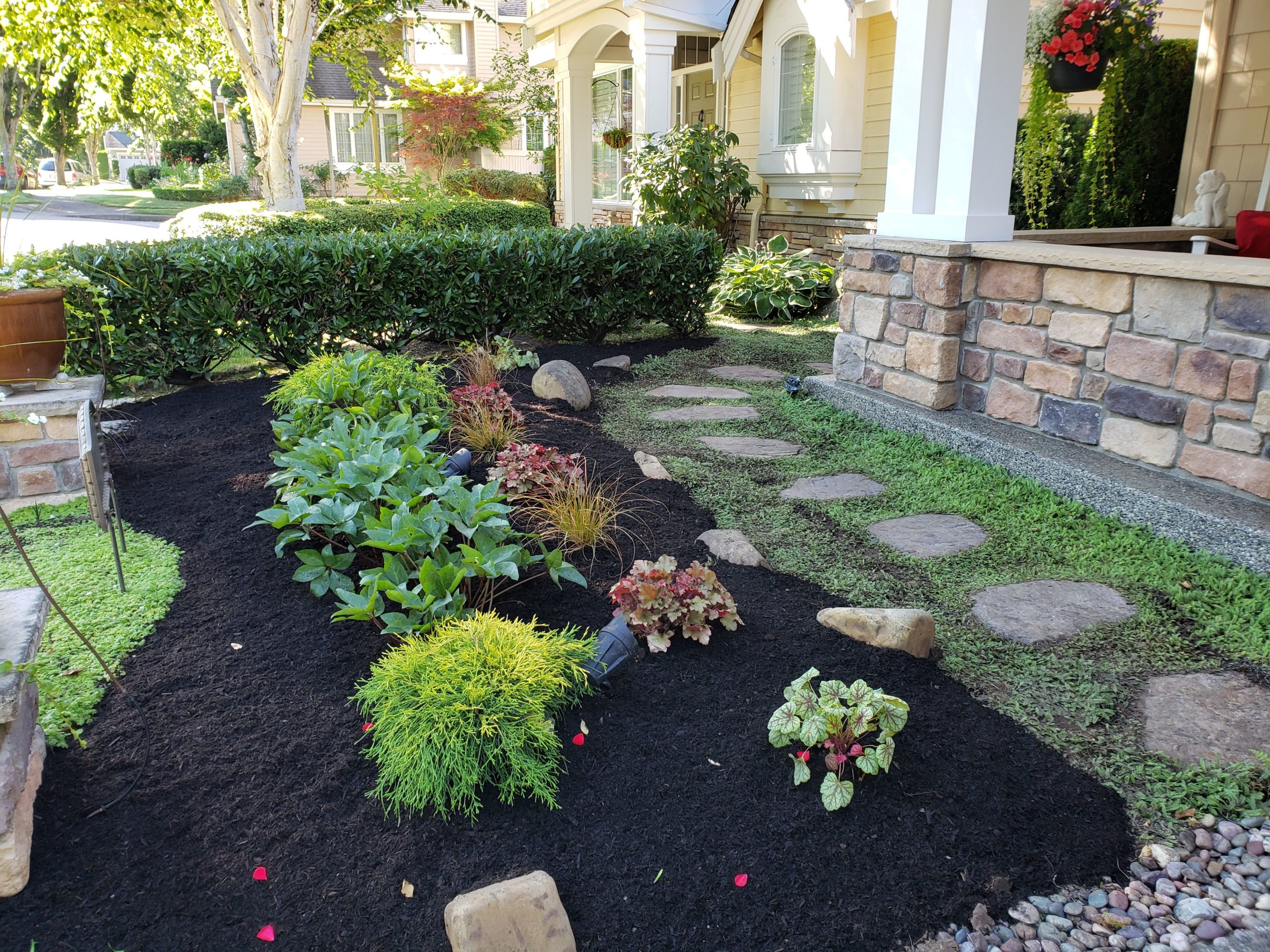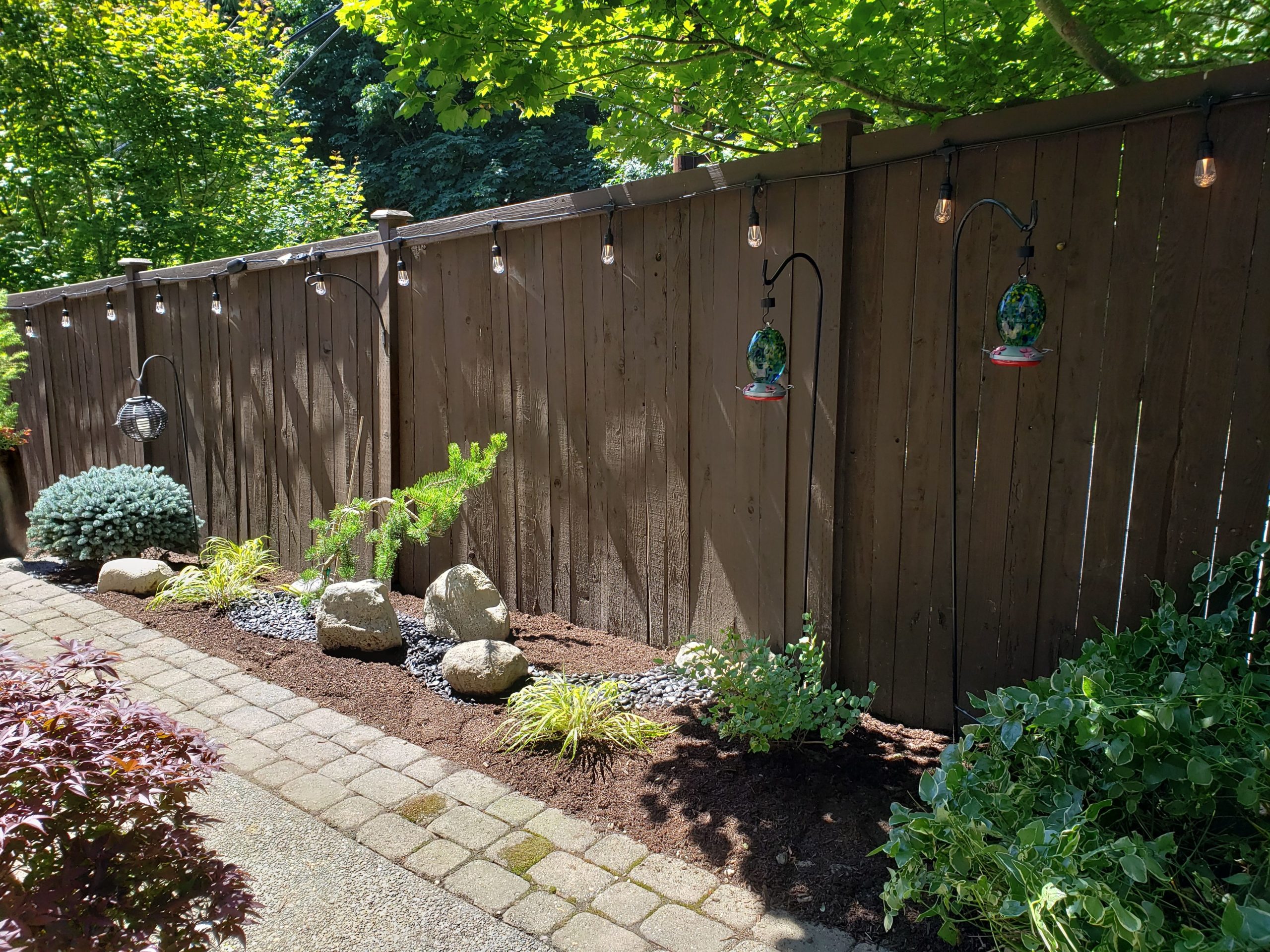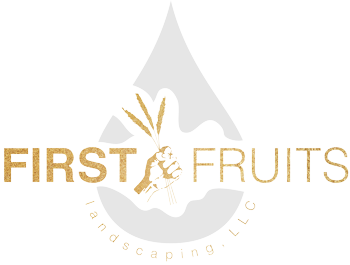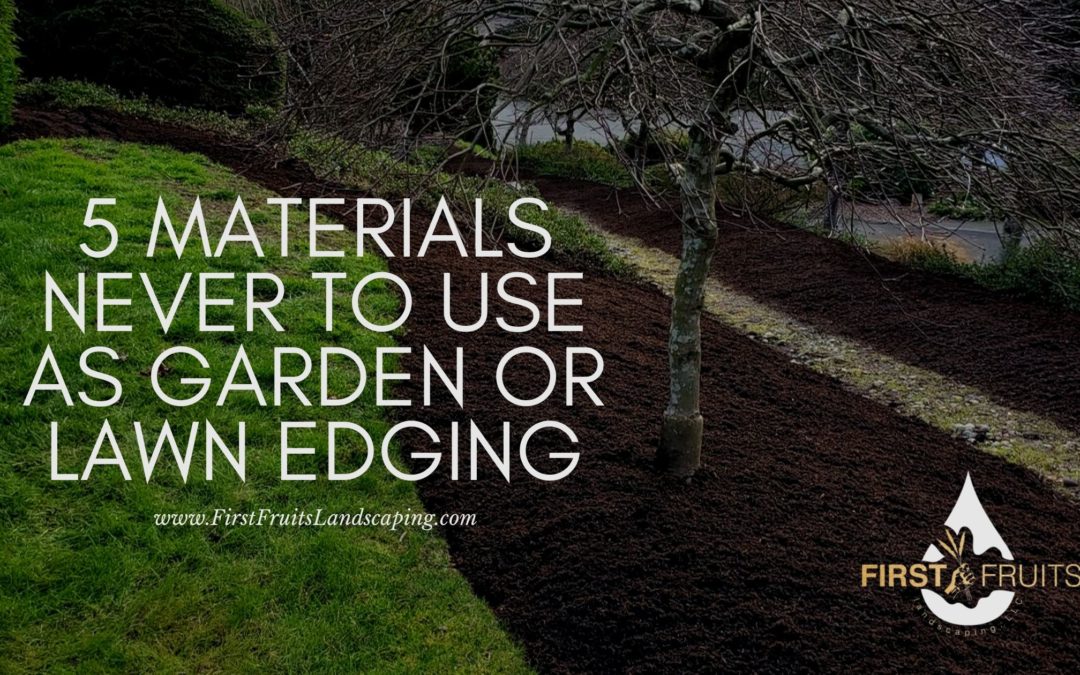Lawn edging, grass, short fences, molded plastic, pavers, there are a lot of things that can be used as lawn edging, but it doesn’t necessarily mean that they are all practical. I’ve seen a lot of lawn edging the people have picked up from the big box stores they get shredded in less than a year. If you’re looking at something that needs to be moved just to mow the lawn or you can actually get up close to the edge, it’s going to create more of an eyesore than a nice, neat edging.
If you’re looking at getting some lawn edging here are five materials never to use.
Plastic edging
I understand… You get this wild hair and decide to edge your entire lawn or garden. That little tube of black separating the green lawn from the brown or dark mulch just looks right. And I get it; it makes sense that you want to keep the grass from growing into beds or into the mulch. The problem with plastic edging is that it can pull up if not properly installed, cold winters can make it look dingy and gray, and once it starts shredding, you’ll never get it back to normal and then you’ll have to pull it all up and start over. Not only is this a pain and repetitive, but can be costly.
Short fences
 I don’t know why but every time I see those little arched fences it makes me think of croquet. Are you playing croquet in your yard or do you want an edge? That plastic, metal, or wood fencing might look neat and cute but it’s a pain to keep up. The plastic-coated metal will start to strip and shred creating little white bits all over your lawn and that’s not good for the birds and wildlife either.
I don’t know why but every time I see those little arched fences it makes me think of croquet. Are you playing croquet in your yard or do you want an edge? That plastic, metal, or wood fencing might look neat and cute but it’s a pain to keep up. The plastic-coated metal will start to strip and shred creating little white bits all over your lawn and that’s not good for the birds and wildlife either.
Plus, you will have to maintain the edging yourself, which means weed-eating right up against the fencing, which can damage not only your weedeater but the fence. Trust me, this is not a good way to go either.
Rocks
A lot of people will pull up rocks and continue to put them around their edging as they find them by digging up the dirt in gardens and flower beds. The problem is these tend to spread out all over the place and will get kicked up with a lawnmower, potentially causing damage to the mower and severe damage to people or animals nearby. Rocks that can be easily moved are one of the worst things because they just don’t look nice, they are uneven, and they move, especially when we have hard rains around here.
Brick
Brick is a tricky lawn edging material as is typically more expensive than other materials and can take longer to install. It also may need resetting and become susceptible to frost damage.
Rubber
Rubber, just like plastic, can be brittle over time and will eventually break. It can get caught up in weedeater’s and mowers, shred and flake off into your garden beds, and eventually not look as nice, when you’ve gone to all the work for a neat and tidy garden bed.
So what should you use for garden or lawn edging?
Honestly one of the best things is simply having no material between the grass and the bed. I know that might sound silly, but with proper care and maintenance, you can easily define an edge between the dirt, mulch, and grass. However, it does need a little bit of maintenance but it won’t cause problems to the environment, your lawn equipment, and it won’t leave artificial items strewn about in your yard.
You can also go with a permanent edging such as pavement or concrete that is permanently installed. By doing it properly, you could simply roll the wheel of the lawnmower right over the edge making an easy trim and a neat look to the yard and the edging.
These are probably the only two I highly recommend. If you want a more natural look, I would simply go with no material between the lawn and your mulch or dirt but if you do want some sort of lawn edging material, I recommend a more permanent concrete or poured pavement.
Need some help deciding on the best type of lawn edging for your needs? Give me a call! I’d love to chat with you about what would work best for your home and your landscape and give you some low maintenance options that last for years.
Schedule an Irrigation Blowout

